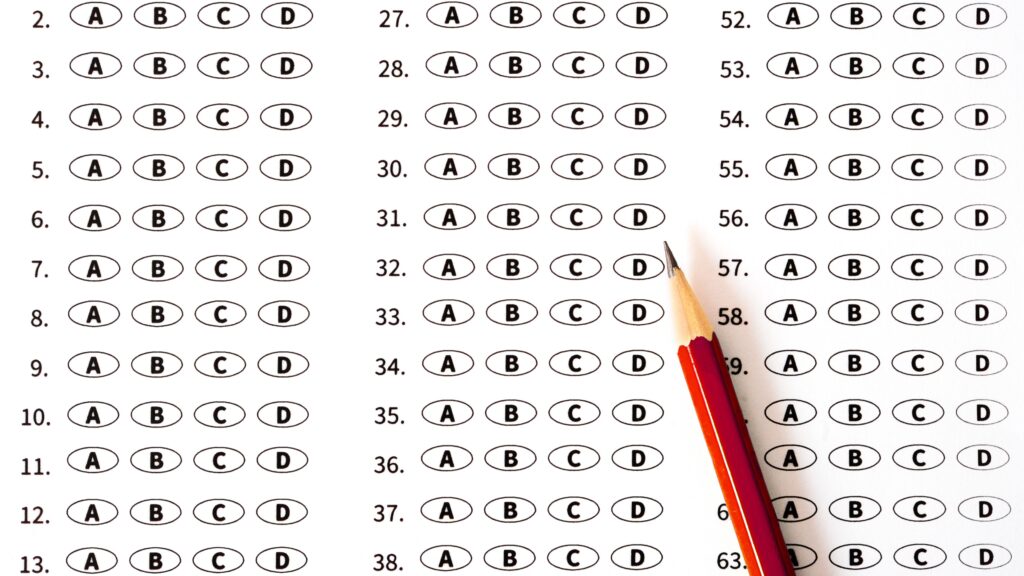Adam Wittenberg | July 25, 2024
(The Lion) — What came first, the chicken or the egg?
That seems to be the question with the College Board “recalibrating” Advanced Placement (AP) test scores in the midst of college grade inflation. But experts worry that other factors are at play, such as a push for “social justice” and a desire to increase profits.
The results of recalibration, or changing how the “Advanced Placement” tests are graded, are stunning.
Whereas 24% of students earned the high marks of a 4 or 5 on the U.S. Government and Politics test in 2023, 49% did so in 2024. It was a similar jump in AP U.S. History, with the number moving from 25.4% to 46%, according to data analyzed by John Moscatiello of Marco Learning. This brings up some glaring questions.
“Are the high school AP history and government teachers in 2024 twice as good as the teachers in 2023? Are the students twice as smart or twice as hardworking?” asks Ira Stoll of theeditors.com. “Not exactly.”
The College Board, which now administers more than 4.7 million AP tests annually – up from 580,000 in the early ‘90s – has not revealed its methodology for recalibrating, but has said it’s doing so in response to grade inflation at colleges and universities, which has been well documented for years.
The argument is that if a student would have passed the college class in that subject, then it’s right to award them a 3 or better on the AP test so they can earn college credit for it (many colleges award credit for a minimum score of 3, although elite schools like Harvard require a 4 or 5). This helps keep costs down as students save on tuition by not having to take the equivalent class in college. Students that earn a 3 or better consistently outperform those that took the equivalent college course in future course work, the College Board says.
While many students are happy with the higher scores, the recalibration has raised other issues since it began three years ago.
For example, some tests have been recalibrated and others haven’t, meaning that some students are receiving higher marks but others are stuck in the “old” way of scoring. There’s also a concern about educational quality and whether the new scores actually contradict the College Board’s insistence that its tests, such as the SAT and AP exams, are a necessary standard to combat grade inflation in schools and level the playing field.
The College Board may also be motivated by other factors, such raising the scores of poor and minority students, who traditionally perform less well on the tests than white students.
With the number of AP tests ballooning 700% over the last three decades, “the program now generates approximately $500 million annually for the College Board,” writes Moscatiello. And a November 2023 article in The New York Times questioned why more than $90 million in taxpayer funds were being given to support the exams, which so many low-income and students of color fail. That amounts to taxpayers shelling out nearly $20 per test.
Recalibration may boost the number of passing students, but Stoll worries about the long-term impact. He sees it as “part of an overall trend of confusing mediocrity with excellence, and of trying to address persistent racial and economic inequality by eliminating standardized testing and merit-based distinctions rather than by improving education and expanding opportunity.”
Educators also face a dilemma: states such as Florida and Arizona give AP teachers bonuses when their students score a 3 or higher, and Texas teachers can earn salary increases when AP data is linked to improvement in student outcomes, Moscatiello reports.
Another issue is competition from dual-enrollment classes, where passing students receive college credit without having to take the AP exam. As more and more students exercise this option, the College Board could be securing its market share by making its exams easier to pass.
The so-called “Great Recalibration” is expected to continue for the next few years and will likely keep boosting scores, Moscatiello predicts.
This article was made available to EdNews Virginia via The Lion, a publication of the Herzog Foundation.
